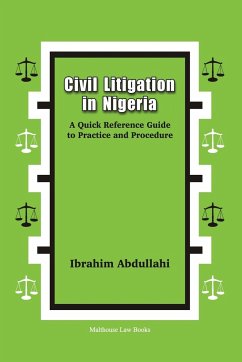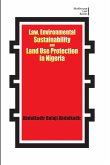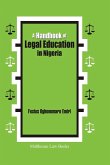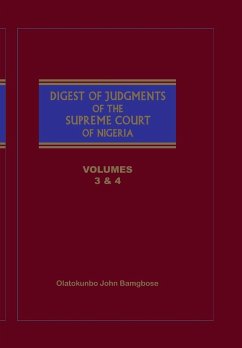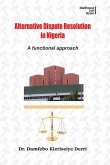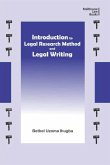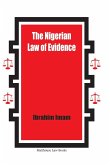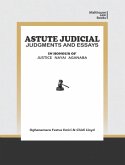This book highlights in a most condensed form judicial pronouncements by the superior courts of records as they relate to practice and procedures in civil litigation in Nigeria. Judicial pronouncements on civil aspects of the law in Nigeria are on the increase, rendering brief-writing more challenging, if not herculean, in the absence of a resource guide for the citation of authorities and knowing which changes have taken place in the law. For lawyers not to be taken by surprise in courts when issues relating to practice and procedures are raised without notice, makes the need to have a resource book that should serve as a quick guide the more compelling. This book is thus intended to be a reference guide.

